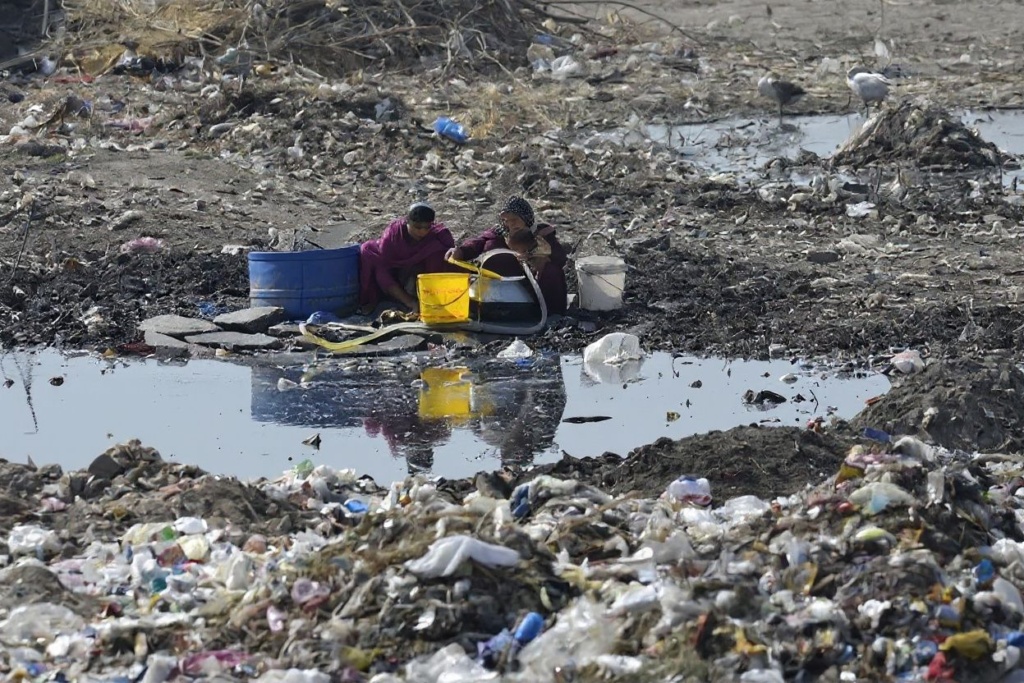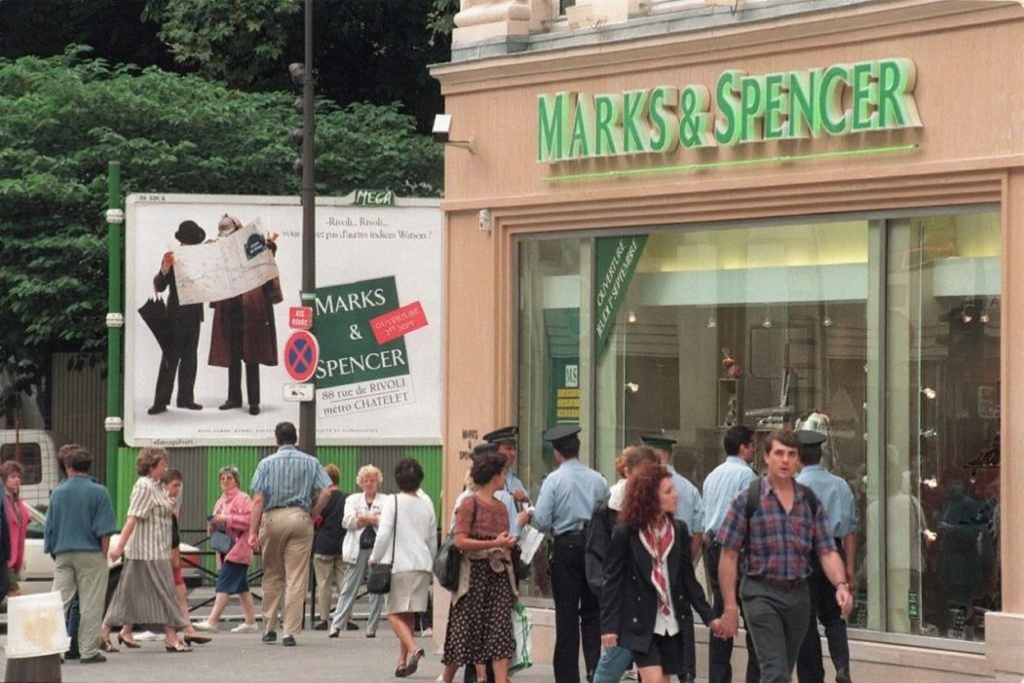
In recent years, our clothing consumption has skyrocketed to unprecedented levels, posing a serious threat to the planet and our future — and making sustainable fashion schools all the more important.
On average, a person now buys 60% more clothing items than just 15 years ago. These are often discarded after only a few uses — contributing to a vicious cycle of environmental degradation and exploitation, fuelling the demand for cheap and fast fashion.
The dangers associated with our insatiable appetite for clothing are potentially catastrophic.
The environmental impact of textile production is immense, with the fashion industry responsible for 8% to 10% of global carbon emissions.
Making clothes involves a lot of water, chemicals and energy.
When we get rid of them, we add to the growing waste crisis.
The equivalent of one garbage truck full of textiles is estimated to be landfilled or incinerated every second globally.
This not only worsens pollution but also contributes to the depletion of natural resources, as new clothing items require vast amounts of water, land, and raw materials.
In the worst-case scenario, this could lead to irreversible damage to ecosystems, depletion of vital resources and adverse effects on human health.
Sustainable fashion is the only way forward.
 In 2020, 2.6 million tonnes of returned clothes ended up in landfills.
In 2020, 2.6 million tonnes of returned clothes ended up in landfills.
What is sustainable fashion and why do we need it?
Sustainable fashion is fashion that’s more conscious and ethical.
It covers the whole process of design, production, and consumption and considers the environmental and social impact of the entire fashion lifecycle.
Harm to the environment is minimised. How workers are treated are fairer and consumers are encouraged to be responsible.
In sustainable fashion, materials are sourced ethically, production processes prioritise eco-friendly methods, and there is an emphasis on extending the lifespan of garments through practices like recycling and upcycling.
“As our population continues to grow, sustainability will only become more important,” shares Melissa Joy Manning, co-chair of the Council of Fashion Designers of America, Inc. (CFDA) sustainable committee.
The fashion industry is starting to make some positive shifts. Some high-end fashion houses and street brands recognise the importance of incorporating sustainability into their practices.
 A model presents a creation by British designer Stella McCartney during her show as part of the Womenswear Spring/Summer 2024 Paris Fashion Week in Paris on October 2, 2023. Here are a few examples:
A model presents a creation by British designer Stella McCartney during her show as part of the Womenswear Spring/Summer 2024 Paris Fashion Week in Paris on October 2, 2023. Here are a few examples:
- Eileen Fisher:
Eileen Fisher is a women’s clothing brand known known for their commitment to using organic and sustainable materials, promoting circular fashion, and ensuring fair labour conditions.
- Stella McCartney:
Stella McCartney is a luxury fashion brand that avoids using leather and fur, prioritises ethical sourcing, and promotes a circular economy through sustainable practices.
- Veja:
Veja is a sustainable sneaker brand, worn by the likes of Meghan Markle, that prioritises transparency and environmentally friendly practices. They use organic materials, have fair labour practices, and strive to minimise their ecological footprint throughout production.
But beyond fashion houses, another important player must step up their efforts in sustainable fashion: fashion schools.
 Fashion schools that practise sustainability have the ability to educate students for a better tomorrow.
Fashion schools that practise sustainability have the ability to educate students for a better tomorrow.
5 top fashion schools with sustainability at its core
1. California College of the Arts
California College of the Arts (CCA) is renowned for its commitment to sustainable design.
Boasting the longest-running sustainable fashion design programme in the US, CCA sets itself apart by integrating sustainability into the curricula across all levels, from bachelor’s to master’s.
At the heart of CCA’s fashion education are the BA in Fashion Design and MBA in Design Strategy programmes.
The latter focuses on teaching students to craft design strategies for “total value creation,” going beyond mere profitability.
Faculty includes industry luminaries such as Lynda Grose, co-founder of Esprit’s collection, Bob Adams, designer/farmer and IDEO Fellow, and Amanda Cattermole, a longtime director at Levi Strauss & Co.
2. Parsons The New School for Design
Parsons The New School for Design is not just a fashion school; it’s a place of innovation and sustainability.
Located in the fashion capital New York, it is a dream destination for aspiring designers.
Parsons takes a holistic approach to sustainability, making its course on Sustainable Systems mandatory for all incoming freshmen, ensuring every student has a foundation in eco-conscious design principles from the start.
Students can also specialise in sustainability across all majors and courses, such as Sustainable Systems, Zero Waste Design, and Sustainable Fashion.
The school’s faculty includes zero-waste menswear designer and author Timo Rissanen, fashion industry consultant Bernard Kahn, and Dr Hazel Clark, Research Chair of Fashion at Parsons.
 British retailer Marks and Spencer (M&S) is known for its high-quality products and support of sustainable sourcing from local suppliers.
British retailer Marks and Spencer (M&S) is known for its high-quality products and support of sustainable sourcing from local suppliers.
3. London College of Fashion
London College of Fashion (LCF) takes a comprehensive approach to sustainable fashion, offering students knowledge and expertise in sustainability across various departments.
The Centre for Sustainable Fashion (CSF) plays a huge role in shaping LCF’s sustainable fashion programmes, collaborating in developing the MA in Fashion Futures and providing a rich network of professors, designers and industry leaders.
It goes beyond traditional education, actively engaging in initiatives such as opening the UK’s first sustainable fashion lab in collaboration with Marks & Spencer, launching Shared Talent India to encourage expertise exchange across the supply chain and hosting the prestigious Fashioning the Future Awards, which celebrate innovative sustainable designs from students and graduates worldwide.
 Sustainable fashion schools provide the younger generation with the knowledge of how to reduce waste and ensure a sustainable future.
Sustainable fashion schools provide the younger generation with the knowledge of how to reduce waste and ensure a sustainable future.
4. Fashion Institue of Technology
The Fashion Institute of Technology (FIT) was among the first higher education institutions in the US to actively collaborate with the government to reduce carbon emissions.
In 2011, FIT achieved a milestone by reducing carbon emissions by 30%, and by 2016, this figure soared to 46%, with a target to reach 50% reduction by 2025.
The commitment to sustainability extends beyond the classroom, as FIT’s campus buildings feature innovative green roofs adorned with acres of sedum plants, contributing to insulation, carbon absorption, and stormwater management.
The school offers a range of programmes and courses that reflect a deep commitment to ethical and sustainable practices.
The Minor in Ethics and Sustainability equips students to apply sustainability across various aspects, such as:
- materials
- economics
- aesthetics
- theories
- social responsibility
FIT’s online courses, such as Introduction to Sustainability and Circular Product Lifecycle, provide more avenues for students to delve into sustainable practices.
Its Sustainable Design Entrepreneur Certificate Programme exemplifies its approach to sustainability education.
This intensive programme incorporates sustainable practices into the BFA in Fashion Design curriculum and offers a standalone certificate that focuses exclusively on sustainable design.
The certificate equips design entrepreneurs with the knowledge, tools and resources needed to build businesses based on sustainable design practices.
5. Polimoda
Polimoda is located in the Italian city of Florence, home to fashion giants like Gucci, Salvatore Ferragamo, Roberto Cavalli and Emilio Pucci.
Polimoda’s commitment to sustainability is evident in its dedicated programmes designed to shape professionals for the future of fashion.
It offers two specialty courses centred around sustainability:
- a nine-month master’s programme
- a one-month seasonal course
The institution’s strong connections with haute couture fashion houses, industry insiders, and fashion weeks across Europe provide students with opportunities to kickstart their careers in the European fashion industry.










